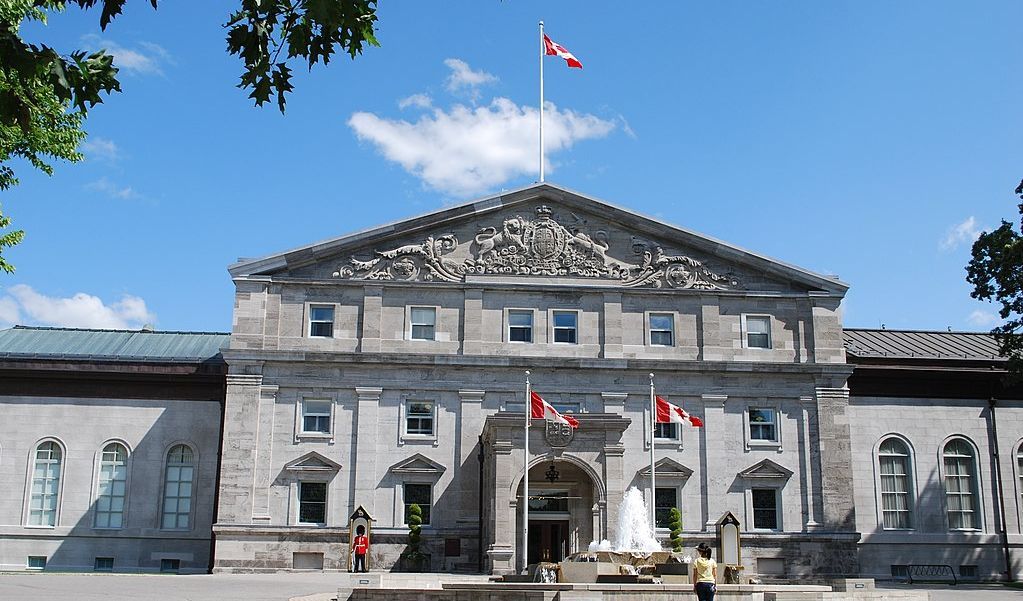In Lewis Carrol’s book Alice’s Adventures in Wonderland there is a character, the Queen of Hearts – a foul-tempered monarch who takes offence easily and is quick to hand out death sentences. One of her most famous lines is “Off with their heads!” From all reports, it seems that Ms. Payette, even though supposedly a mere representative of Queen Elizabeth in Canada, had her own monarchical ambitions – the heads she wanted to metaphorically “off” were workers in her own office of the Governor General. Payette’s sudden resignation last week came amid charges she was abusive with her staff.
Cutting ribbons
Literary references aside, there are serious issues, in addition to that of abusive bosses, arising from the Payette affair. Toronto Star journalist Bob Hepburn noted that “in the 40 months that Julie Payette was Canada’s governor general she read two throne speeches, officiated once over the dissolution of Parliament, swore in some 30 cabinet ministers and wrote her signature on several dozen pieces of legislation. That basically was the sum total of her primary duties. She also spent a bit of time meeting children, cutting ribbons and handing out public service awards. By all accounts, Payette hated doing many of these tasks – to the point she even stopped doing some of them.”
And the cost of operating her office over those 40 months? A staggering $120 million! Or put another way, the purchase of 3,400 new hospital beds.
Money for nothing
Hepburn further commented, “indeed, it seems like the perfect job – the workload is light, the pay is $288,900 a year, the benefits are spectacular, including an inflation-adjusted pension of $149,484 a year for life for a job that lasts just five years, a large staff ($19 million a year), servants, chauffeur-driven vehicles and two official residences, Rideau Hall in Ottawa and La Citadelle in Quebec City ($9 million annually).You can add in travel and offices expenses of up to $206,000 a year after you’ve left the job plus several million dollars for you to set up a charity.”
Following her resignation, much of the discussion has been about how to “reform” and “modernize” the office, how to “democratize” the selection process and who would be best to replace Payette as the Queen’s representative in Canada. Why does Canada even need a representative of the Queen? (We’ll leave it to our brothers and sisters in the “mother country” of the UK to decide if a queen is required there. Apart from the entertainment value that the Royal Family provides for a show like The Crown, there’s not much substance and the upkeep of Buckingham Palace alone comes to $109 million a year).
What does a GG do?
There are pundits and constitutional experts who claim that the GG job is too important to be ditched owing to the importance of “tradition” and “constitutional law.” Yet Hepburn maintains that “most Canadians don’t have a clue what the governor general does or that she represents Queen Elizabeth, Canada’s head of state. I’d wager even more that most people believe Justin Trudeau is our head of state, when it’s actually a sweet 94-year-old great-grandmother living in England.”
However, beyond the sentimental posturing to all things monarchical, there is a serious right-wing threat to democracy posed by the GG position.
Political role of GG
The GG has certain political powers including giving Royal Assent to laws passed by the Canadian Parliament and starting the process for a federal election. The GG exercises these powers on the advice of the prime minister, who has day-to-day responsibility for governing.
The governor general’s reserve powers are not included in the Constitution. They come from the authority of the Queen, who the governor general represents. The only guide to these powers is convention – tradition. This means the exact nature and scope of these powers is arguable.
The GG’s reserve powers are generally agreed to include:
- The power to appoint a prime minister if an election has not resulted in a clear outcome.
- The power to dismiss a prime minister if they have lost the support of the majority of members of the House of Commons.
- The power to prorogue parliament.
- The power to refuse a request for a dissolution of parliament.
- The power to refuse a request from a prime minister to call an election.
Thus, in a situation as we have now in Canada of a minority government, the GG theoretically has the power to intervene and shape the formation of a government. And it’s not just theoretical.
In 1926, the King–Byng affair was a Canadian constitutional crisis, when the then GG of Canada, Lord Byng, refused a request by the prime minister, William Lyon Mackenzie King, to dissolve parliament and call a general election. In Australia, where the governor general has similar powers to Canada, there was a constitutional crisis, often known as the Dismissal, which culminated on November 11, 1975. Governor General Sir John Kerr removed Prime Minister Gough Whitlam of the Australian Labor Party and then appointed Malcolm Fraser, the Liberal Party’s Leader of the Opposition, as caretaker prime minister.
Admittedly, these two cases were rarities and neither led to major upsets or discontinuity of governments. However, like the monarchy itself, the position of governor general should not be viewed as a quaint vestige of feudalism or colonialism. Should the need arise, the ruling class will have no compunction in using these vestiges to defend their own interests.
When the governor general prorogues parliament, at the prime minister’s request, it ends all business in progress and allows the government to reset parliament’s agenda. It has been widely used by prime ministers to avoid difficult or embarrassing situations. Canada’ first prime minister, Macdonald, tried it in an attempt to stop an investigation into his party’s corrupt dealings over the construction of the transcontinental railway. Harper had parliament prorogued to avoid a no-confidence vote he would probably have lost. Trudeau did the same to end investigation into the WE scandal. Although not as serious as dismissing the government, as happened in Australia, the power to prorogue does undermine democratic rights.
Hepburn concluded his article, “Payette’s resignation should also force every Canadian to ask themselves the embarrassing – dare I say, humiliating – question of why we continue to have a foreign monarch as our head of state.”
Off with her head? That’s not necessary. A socialist government in Canada would simply lay-off the governor general, reassign staff to other positions and renovate Rideau Hall for affordable housing.




